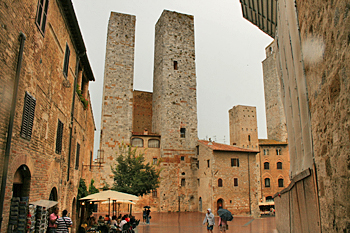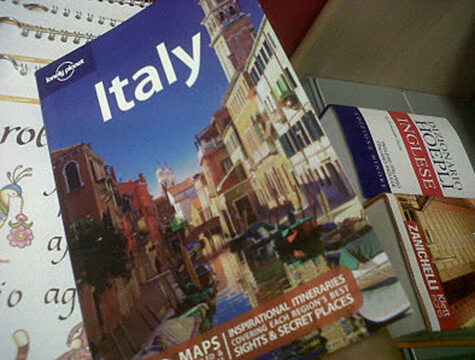The guidebooks’ bizarre explanations that I came across when writing “Misguided” were not much clarified by my follow-up research. What does Wikipedia have to say? Not very much. The site mentions that the Guelphs and Ghibellines conflict and family rivalries “resulted in families building tower houses of increasing height…. The rivalry was finally restrained […]
-
the flat earth myth’s appeal
// Elizabeth Marcus // All, Blog
Scholars are clear that the earth’s true shape was never lost. It is well established that educated people, from at least the 14th century on, recognized sphericity. Since the curvature of the planet is visible during an eclipse and during sea travel, this is not surprising. What is surprising, is that the myth was routinely […]
-
how basic knowledge gets lost
// Elizabeth Marcus // All, Blog
Since the Trump election, we have woken up to the prevalence and danger of fake news in America. Carefully designed to warp public opinion and spread by social media using high tech analytics, it has become a major threat to our democracy. Huge segments of the population no longer trust in expert opinion, even in logic. But this […]
-
the origin of Romeo and Juliet?
// Elizabeth Marcus // All, Blog
When I wrote the essay, Misguided, I assumed the Romeo and Juliet story was fictional. But when I looked into the matter, I found a lot of confusion. Wikipedia doesn’t answer the question but its information does help explain why the guide books were confused. Of the several plays that predate Shakespeare’s (which was written […]
-
misguided
// Elizabeth Marcus // All, Essays
Once it was Baedeker or nothing. Now a slew of guidebooks compete for the privilege of answering the traveler’s every question. Usually I take along only one book, but on one trip to Northern Italy many years ago, I packed four: Fodor’s for the basics, Michelin for authoritative facts and maps, and, just in […]
-
why the Pisa tower leans?
// Elizabeth Marcus // All, Blog
As for the Tower of Pisa’s tilt, Wikipedia is explicit on the cause: an inadequate foundation on ground too soft on one side to properly support the structure’s weight. The theory of the intentional tilt seems to be as crazy as you might think. Some of the guidebooks’ confusion, however, might be attributed to […]
-
you’re not like your parents? really?
// Elizabeth Marcus // All, Blog, Decoding Our Parents
Psychologists would say that we naturally identify with our parents, either modeling ourselves on them or establishing independent identities by choosing the opposite path. The perfect example of conscious rejection is the 1980’s TV series, Family Ties, starring Michael J. Fox as the hyper-conservative son who mocks the liberal values of his baby boomer […]
-
whither the “generation gap”?
// Elizabeth Marcus // All, Blog
Hippie gurus and tie-dyed bell-bottoms are history. The police are no longer pigs. Crunchy granola has lost its claim on virtue. Has the generation gap also gone the way of all things sixties? Having lived through the era, I assumed that every generation was doomed to be cut off from the next by dint […]







